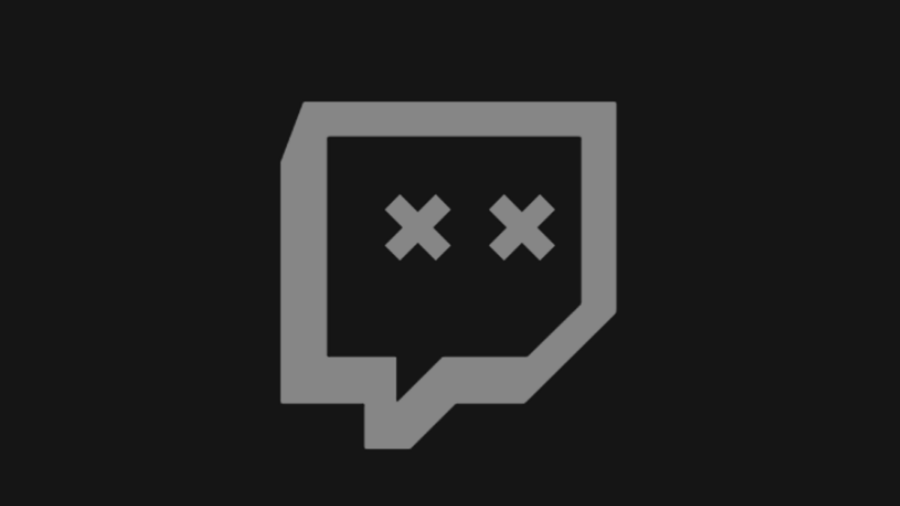Stop me if you’ve heard this one before: The music industry is taking aim at Twitch, this time to the tune of “about 1,000 individual claims,” according to the company. Twitch’s solution? Second verse, same as the first: Delete, delete, delete.
In an email sent to streamers earlier today, Twitch explained that “all of the claims are for VODs,” and it believes that music publishers used automated tools to locate them, meaning that “they will likely send further notices.” Just like the other times this has happened, Twitch recommends that streamers eliminate any and all content that might contain offending material. For some streamers, this constitutes large chunks of their professional histories.
“If you know you have unauthorized music or other copyrighted material in your past VODs or Clips, we strongly recommend that you permanently delete anything that contains that material,” Twitch wrote. “For your remaining VODs, we recommend you use the ‘unpublish all’ feature and review any content for unauthorized music or other copyrighted material.”
Twitch went on to say that it’s working to mitigate this problem more comprehensively, with solutions that include “educating creators and providing resources to understand the rules and risks concerning the use of music on Twitch as well as building new product features (such as the ability to unpublish VODs, view your strike count, strike notifications in the Creator Dashboard, multi- track audio support for OBS and more), investing in proactive detection and muting, and working with rights holders on longer-term solutions.”
The issue with many of Twitch’s solutions thus far is that, from the music industry’s perspective, they represent loopholes or means of maneuvering around restrictive music rights. Twitch and music companies remain stuck at an impasse, with each using their respective creators as bargaining chips. In an open letter published last year, multiple major U.S. music organizations, including the RIAA, deemed Twitch’s solutions unsatisfactory and said that for songwriters and performers, “fair royalties on a growing platform like Twitch can literally be a matter of life and death—the difference between having a place to live and homelessness and having access to health care or being uninsured.” Meanwhile, in today’s email, Twitch tried to make itself sound like creators’ sole ally in this conflict: “This is our first such contact from the music publishing industry (there can be several owners for a single piece of music), and we are disappointed they decided to send takedowns when we are willing and ready to speak to them about solutions,” the company wrote.
G/O Media may get a commission
The problem with this rationale is that both Twitch and the music industry are the ones making the rules here, and if they actually did not want creators to suffer, they could prioritize compromise over getting their way (or they could at least pay their respective creators better instead of acting like matters of “life and death” are out of their hands).
At this point, streamers are fed up with the DMCA-tastic status quo.
“Just got a DMCA strike on a VOD over ‘Boulevard of Broken Dreams’ playing on a video from March 2019 that nobody except grubby music corporations can access,” Minecraft streamer Sneegsnag said on Twitter. “If they can go in and see it I should be able to as well. This system is abysmal.”
“So I received another email from twitch reminding me about DMCA takedowns that are happening right now, which means I will go and delete all of my clips and VODs once again,” said Twitch partner Shenpai. “I’m so angry.”
DMCAs on Twitch are rooted in more than just music, despite Twitch’s music-centric messaging on this front. Late last year, streamers reported receiving automated audio mutes and notices for VODs containing in-game audio and other sounds that are not, strictly speaking, music. Others have said they’ve received live DMCAs—that is, takedowns that occur before a stream has even ended—over TV and movie-related content. Kotaku reached out to Twitch for more about how it’s handling live DMCAs that seemingly come from a different industry, but it was not able to provide additional information at this time.
After nearly a year of DMCA woes, streamers do not have much faith that Twitch is going to do right by them any time soon—or, indeed, that much can be done so long as the Digital Millennium Copyright Act remains the law of the land.
“Streamers and YouTubers should get together and bribe (lobby) politicians to change these ridiculous and antiquated laws,” said popular WoW streamer Asmongold. “Embarrassing that the internet still follows a law written in 1998.”
Kotaku
Source link
Related Post:
- The Bidoof Celebrations in Pokemon Go Just Keep On Coming
- First look at Dead Space remake coming in Twitch livestream
- How to Keep Everyone Alive in the Suicide Mission – Mass Effect 2 Wiki Guide
- Little Nightmares is currently free to keep on Steam
- Little Nightmares is free to keep this weekend
- One of the best horror games on Steam is free to keep for one more day
- KFC And Anime Kaguya-sama Keep Flirting On Twitter
- Microsoft Store gives app developers option to keep 100% of revenue, but not games
- Monster Hunter Stories 2 will have plenty of post-release content to keep you busy
- Sony Cannot Afford To Keep Burning Bridges With Smaller Developers
